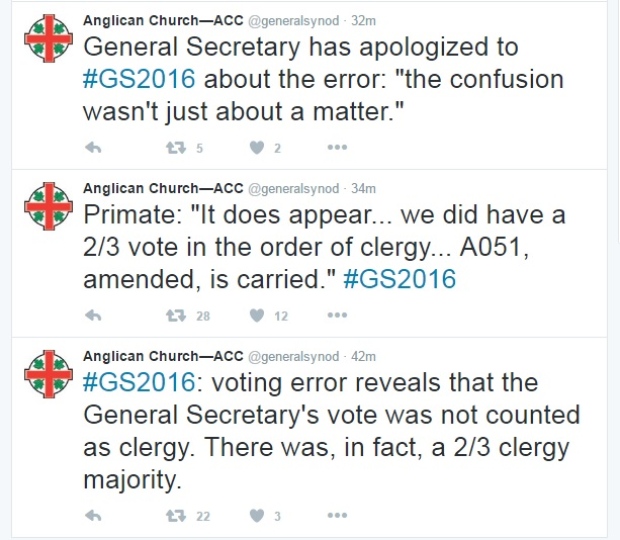John Clarke, the archdeacon of Prince Edward Island region believes that because the vote to approve same-sex marriage passed at general synod, its passing must be God’s will and the Holy Spirit must have guided the members of the synod to vote as they did.
That means God has been misleading every church synod for the last couple of millennia; he is still misleading the Roman Catholic church, the rascal.
I suppose it’s possible that, having thought one way for thousands of years, God has changed his mind and now thinks the opposite, convinced, perhaps, by the pious, saintly behaviour of those participating in gay Pride marches. Or maybe he just wants to be more relevant.
From here:
There are those who would argue that the church is not a democracy, but the Body of Christ in the world, with Jesus Christ as head. True; however, neither is our church a dictatorship. We have put into place reasonable and fair rules to help us collectively discern the will of God in the life of our church. There is no one person ruling the church. It is our collective responsibility to use Scripture, tradition and reason to help discern the will of God in our lives today. We have no option but to take seriously the idea that God’s Holy Spirit might be calling the church to a new thing—a new thing that is reflected in the overwhelming majority of prayerful, careful members who voted yes on the resolution to change the marriage canon.
Since God has clearly spoken, those who oppose homosexual marriage should grit their teeth, shut up and stop disrupting the unity of the church:
It is inappropriate, at this point, for people to oppose the action of General Synod regarding same-sex marriages. The responsibility now lies with those who voted “no” to honestly consider if, in fact, the Holy Spirit is leading our church in a new direction.
The odd thing about all this is that liberals have spent decades sneering at orthodox Christians – fundamentalists or fundies as they are fondly known amongst the dog collar elite – for claiming to hear from God. Now, all of a sudden, it is liberals who have a direct line to God – well, to some sort of god.


